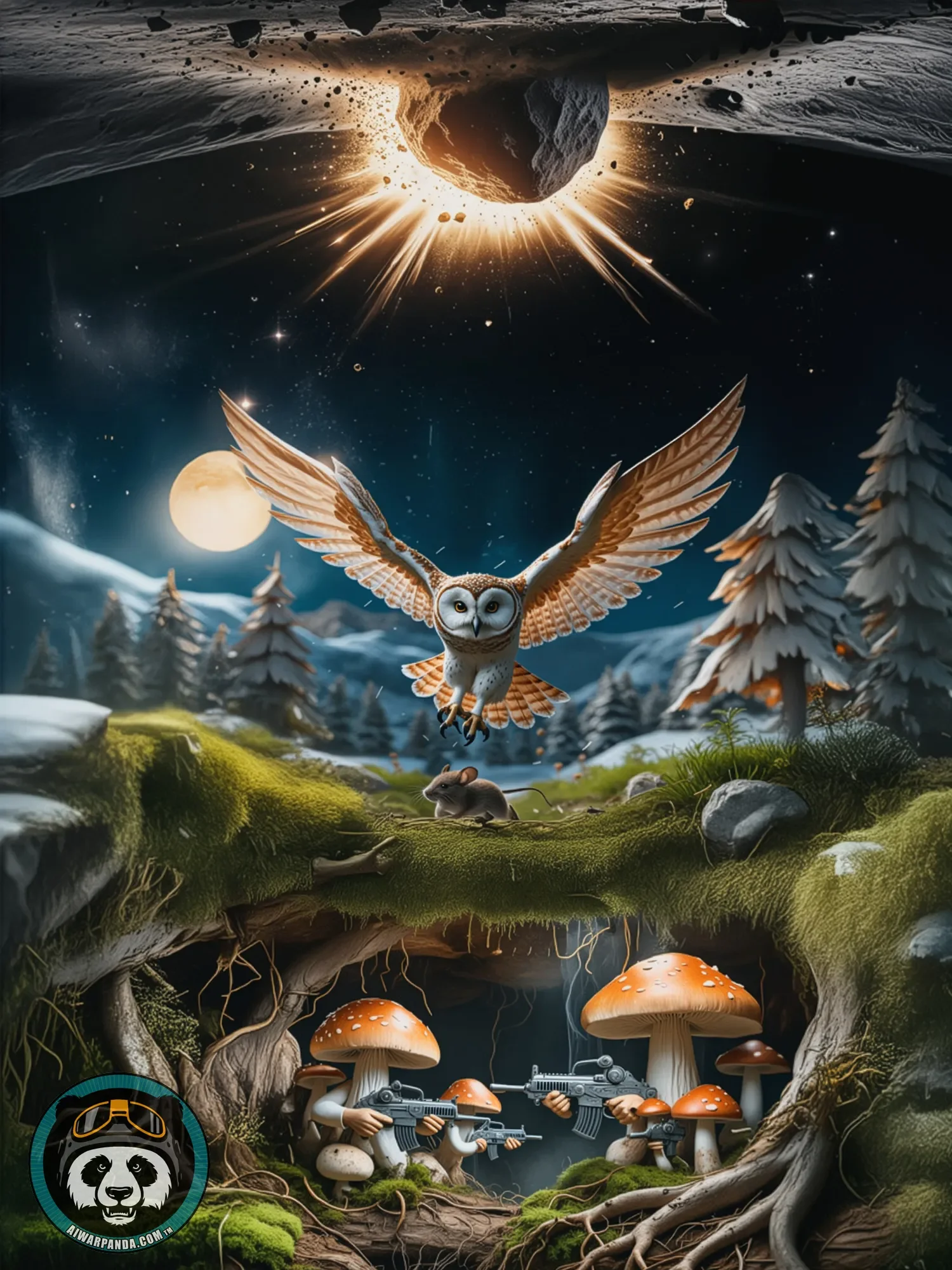The Universe at War
Universal War
We humans have a complicated relationship with war. We abhor its brutality, mourn its losses, and strive for a world where peace reigns. Yet, a nagging question lingers: is this aspiration for universal harmony a uniquely human invention, a fragile ideal we project onto a reality far more primal? What if war, in its broadest sense, isn't a human aberration but a fundamental characteristic of existence itself, echoing from the grandest cosmic scales to the smallest ecological niches?
Look up into the night sky. We often imagine a serene and majestic cosmos, but the truth is far more violent. The birth of stars is a cataclysmic struggle within nebulae, where gravity crushes matter until nuclear fusion ignites in a blaze of unimaginable energy. Supernovae, the spectacular deaths of massive stars, scatter elements forged in their cores through space in colossal explosions – a cosmic act of destruction that seeds the creation of new worlds. Galaxies themselves engage in slow-motion collisions, gravitational titans locked in an eons-long dance of destruction and reformation. And then there are the ultimate cosmic predators: black holes, their gravitational pull an insatiable hunger, consuming everything that strays too close, warping the very fabric of spacetime. Even the seemingly empty void is traversed by asteroids and comets, remnants of cosmic collisions, their impacts on planets capable of triggering catastrophic change – a brutal reminder of the universe's volatile nature. The very concept of entropy, the universe's inexorable march towards disorder, is a slow, universal "war" where everything ultimately breaks down and loses its form.
Now, let's bring our gaze closer, down to the world beneath our feet. The seemingly tranquil soil is a battleground. The intricate network of plant roots engages in a silent but fierce competition for water and vital nutrients, aggressively pushing through the earth, claiming territory. Fungal networks, vast and unseen, are also locked in a constant struggle for resources, even engaging in a form of "attack" against other organisms to secure their survival. On a microscopic level, a relentless war rages between countless bacteria and other microorganisms, a constant fight for dominance in their tiny ecosystems.
Whether on land or in our rivers and oceans, the presence of ongoing conflict becomes increasingly evident. The daily drama of predator and prey unfolds in a brutal ballet of tooth and claw, fin and beak. The swift strike of a night owl, the silent pursuit of a lion, the cunning ambush of a spider – these are not isolated incidents but the very engine of life. Evolutionary arms races drive this perpetual conflict, with each adaptation in a predator forcing a counter-adaptation in its prey, an unending cycle of offense and defence. Survival hinges on the ability to hunt or evade, a constant state of potential violence.
Yet, in the face of this seemingly universal struggle, we humans declare war to be wrong. We strive for peace, build institutions to prevent conflict, and espouse ideals of tolerance and compromise. Are we then, in our desire for peace, standing against the very nature of the universe and the fundamental laws of survival that govern all life on our planet?
While peace is undoubtedly a noble and desirable goal, the idea that we can ever truly evolve beyond conflict might be a delusion. Looking at the history of our species, and indeed, the history of life on Earth, suggests that competition and the potential for violence are deeply ingrained. We grasp at concepts like tolerance and understanding, hoping to transcend our base instincts. But are we simply being naive? Can we truly believe that we can forever coexist peacefully with those who might seek to harm us, those driven by their own survival instincts or competing ideologies? Are we anything more than complex hunters and potential prey in a world that, at its core, seems to operate on principles of dominance and survival?
This isn't to say that the pursuit of peace is futile. Our capacity for empathy, cooperation, and reason sets us apart. However, to ignore the pervasive nature of conflict throughout the universe and on our own planet might leave us unprepared for the challenges that inevitably arise. Perhaps true progress lies not in denying the potential for conflict but in understanding its roots, both within us and in the external world around us, so that we can navigate its complexities with greater wisdom and resilience. The destruction of humanity, in some form and at some point, is a statistical certainty given the vast timescales of the cosmos. Our hope lies not in escaping this fundamental reality, but in striving to make our moment in the universe one marked by as much understanding and cooperation as possible, even if the echoes of cosmic and earthly conflict continue to resonate around us
